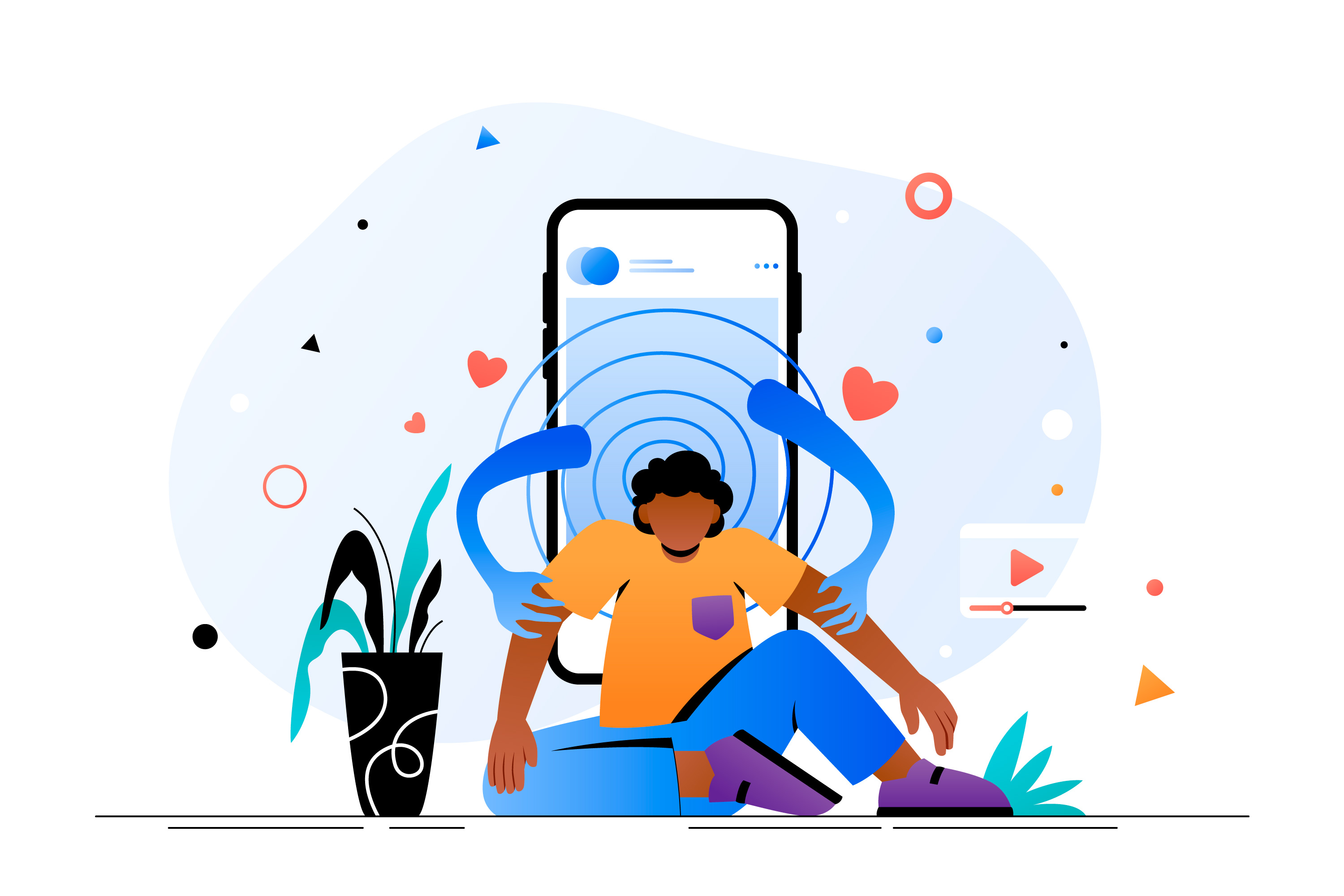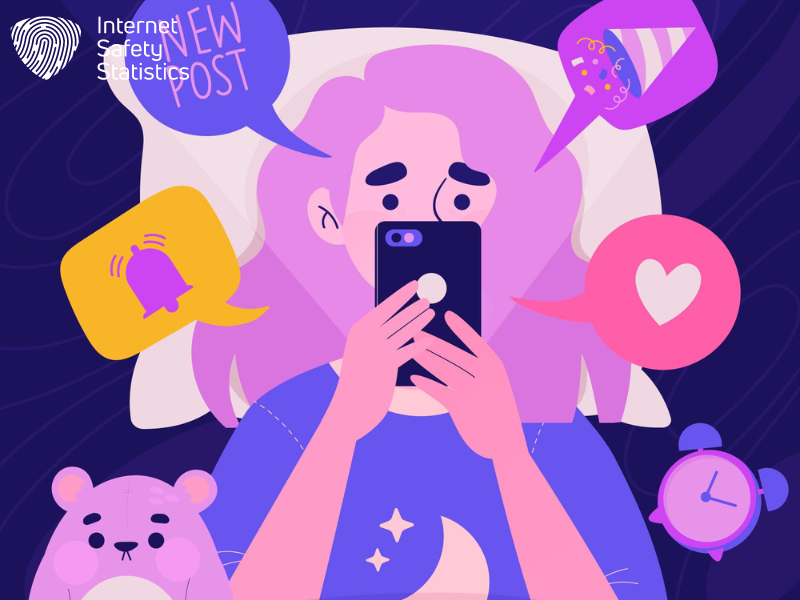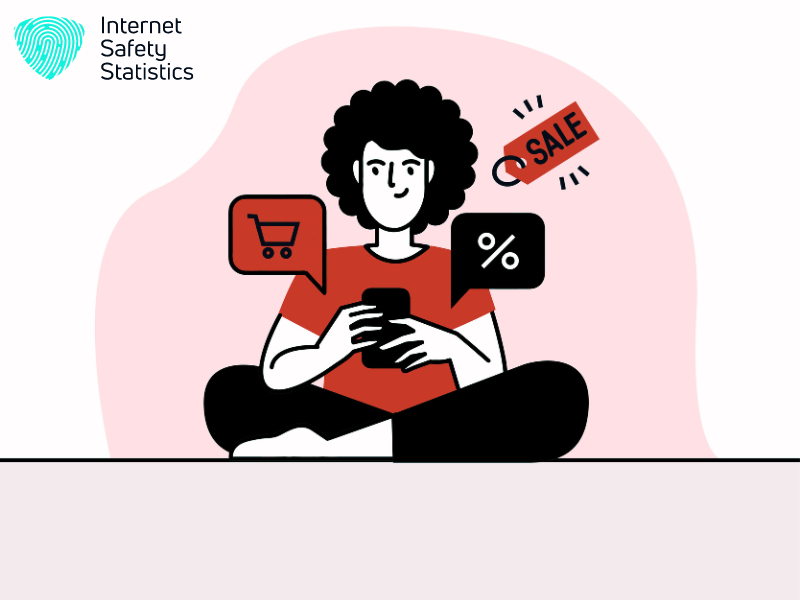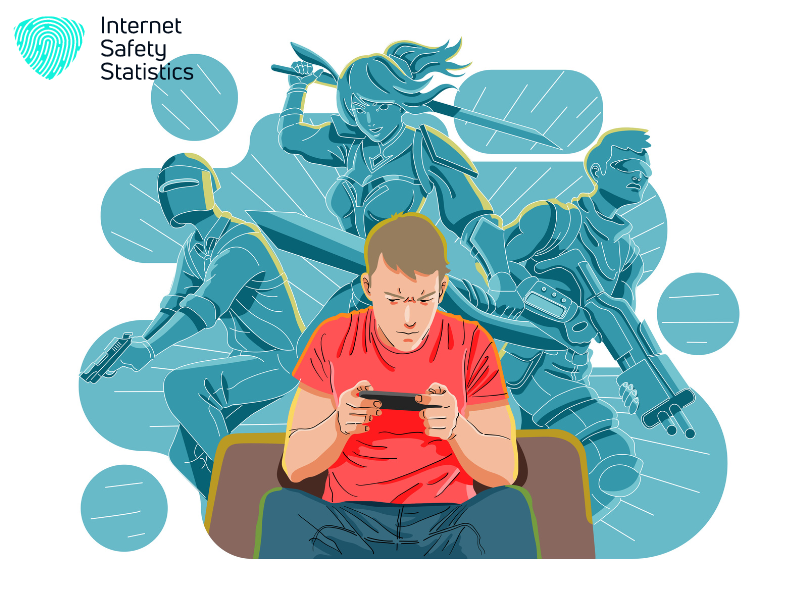
Internet addiction, resembling substance abuse and gambling, manifests as an insatiable urge to remain online for prolonged periods, akin to a compulsive need for drugs or gambling. Often observed among teenagers, internet addiction is rooted in emotional attachments to online friends and activities. While many users find joy in social networking and content creation, others become ensnared in addictive behaviours such as excessive research and blogging. Experts contend that internet addicts seek attention and human connection lacking in their offline lives, using the digital realm to fulfil emotional needs and mitigate real-world isolation.
The allure of the internet lies in its capacity for social interaction, idea exchange, and virtual camaraderie. However, for some, this appeal spirals into dependency, perpetuating a cycle of compulsive online engagement. As the lines between online and offline realities blur, discerning healthy internet usage from addiction becomes increasingly challenging. By acknowledging the emotional and social dimensions of online interaction and fostering mindfulness in digital engagement, individuals can cultivate balanced relationships with technology. Through education, support networks, and community initiatives, society can empower individuals to navigate the digital landscape while fostering authentic connections and promoting overall well-being in both virtual and real-world contexts.
The Concept of Internet Addiction

Internet addiction, a phenomenon increasingly recognised in today’s digital age, encompasses a spectrum of compulsive behaviours related to online activities.
What Constitutes Internet Addiction?
Internet addiction involves an uncontrollable desire to engage with online content and services, often to the detriment of other aspects of life. Individuals experiencing internet addiction may exhibit symptoms such as preoccupation with online activities, withdrawal symptoms when offline, loss of control over internet use, and continued use despite negative consequences. The addictive nature of the internet lies in its ability to provide immediate gratification, social validation, and escape from real-world stressors. This compulsive behaviour can manifest across various online platforms, including social media, gaming, streaming, and browsing.
Differentiating Between Habitual Use and Addiction
It is essential to distinguish between habitual internet use and addiction. While habitual use involves regular and frequent engagement with online activities, it does not necessarily result in adverse effects on one’s daily functioning or well-being. In contrast, internet addiction is characterised by the escalation of internet use to the point where it interferes with other responsibilities, relationships, and activities. Individuals with internet addiction may prioritise online engagement over essential tasks, experience withdrawal symptoms when offline, and struggle to control their internet usage despite negative consequences.
Forms of Internet Addiction

Internet addiction is also sometimes referred to as online addiction, computer addiction or internet addiction disorder (IAD). This type of addiction could take the form of any or all of the following:
Cybersex Addiction
Cybersex addiction is the obsessive use of internet pornography, adult fantasy role-playing sites and adult chat rooms. The ultimate result of this type of internet addiction is a negative impact on real-time intimate relationships.
Cyber Relationship Addiction
This is where internet relationships become more important and meaningful than normal relationships with family and friends.
Net Compulsions
These uncontrollable or compulsive addictions include online gambling, online stock trading, and the use of online auction sites, with a good example of this being eBay. The end results of all this are financial difficulties both at work and at home.
Information Overload
This is uncontrollable surfing of the web or database searching, and it will eventually cause low work productivity and less time to spend with family and friends.
Social Media Addiction
Social media platforms such as Facebook, Instagram, Twitter, and Snapchat offer avenues for social interaction, information sharing, and entertainment. Social media addiction involves compulsive use of these platforms, often driven by a desire for validation, social connection, and fear of missing out (FOMO). Individuals may spend excessive amounts of time scrolling through feeds, posting updates, and seeking approval through likes and comments.
Online Gaming Addiction
Online gaming addiction centres around the compulsive use of video games, particularly massively multiplayer online role-playing games (MMORPGs) and competitive online gaming platforms. Gamers may become engrossed in virtual worlds, spending hours immersed in gameplay to achieve rewards, socialise with fellow gamers, and escape from real-life stressors. Online gaming addiction can lead to neglect of personal responsibilities, disrupted sleep patterns, and social isolation.
Online Shopping Addiction
Online shopping addiction involves compulsive and excessive purchasing of goods and services through e-commerce platforms. Individuals may experience a sense of euphoria or gratification from making online purchases, leading to impulsive buying behaviour, financial strain, and accumulating debt. Online shopping addiction can also be fueled by the convenience, accessibility, and promotional incentives offered by online retailers.
Reasons Why Teens and Pre-Teens Become Addicted to the Internet
Experts have come to the following conclusion after years of study; people become internet addicts in a bid to reduce unpleasant and overwhelming feelings. Some of these feelings could be loneliness, stress, depression and anxiety. Many people find the internet to be the perfect source to dump everyday stresses and to relieve pressure. This is because it is possible to find temporary relief from stress, loneliness, depression, anxiety and boredom on the internet. Seeing that the relief is only temporary, there are other healthier ways that will relieve negative feelings, and they include meditating, exercising and breathing exercises.
Most internet addictions can be relieved by finding an alternative way to handle these problems. In spite of this, most addicts find that even after recovery, these same negative feelings will come back sooner or later. It is therefore important to handle these feelings urgently as they are the causes of the addiction.
Symptoms of Internet Addiction
Internet addiction manifests through a range of symptoms, encompassing behavioural, psychological, and interpersonal aspects.
Behavioural Signs and Red Flags
Behavioural signs of internet addiction include:
- Excessive Time Online: Spending significant amounts of time online, often to the detriment of other activities and responsibilities.
- Neglecting Responsibilities: Neglecting work, school, household chores, or social obligations in favour of internet use.
- Loss of Interest: Losing interest in previously enjoyed activities or hobbies outside of the internet.
- Escapism: Using the internet as a means of escape from real-life problems, stressors, or negative emotions.
- Secrecy and Deception: Hiding or lying about the extent of one’s internet use, including sneaking online sessions or minimising the amount of time spent online.
- Neglecting Physical Needs: Ignoring basic needs such as sleep, nutrition, and personal hygiene in favour of online activities.
- Engaging in Risky Behaviors: Participating in risky or illegal activities online, such as cyberbullying, gambling, or sharing sensitive personal information.
Psychological and Emotional Indicators
Psychological and emotional indicators of internet addiction may include:
- Obsession and Preoccupation: Constantly thinking about the internet, online activities, or social media interactions even when offline.
- Mood Swings: Experiencing mood swings, irritability, or agitation when unable to go online or when internet access is restricted.
- Depression and Anxiety: Experiencing feelings of depression, anxiety, loneliness, or low self-esteem related to online interactions or the need for validation.
- Escalating Tolerance: Needing increasing amounts of time online to achieve the same level of satisfaction or stimulation.
- Withdrawal Symptoms: Experiencing withdrawal symptoms such as restlessness, agitation, or depression when unable to access the internet.
- Diminished Concentration: Experiencing difficulty concentrating, remembering information, or completing tasks unrelated to the internet.
- Escalating Escapism: Using the Internet as a primary coping mechanism to avoid dealing with real-life problems, conflicts, or emotional distress.
Impact on Daily Life and Relationships
Internet addiction can significantly impact daily life and relationships, leading to:
- Academic or Occupational Decline: Declining academic or work performance due to excessive internet use and distraction.
- Social Isolation: Withdrawing from face-to-face social interactions in favour of online relationships and activities.
- Interpersonal Conflict: Experiencing conflicts with family members, friends, or colleagues over excessive internet use or neglect of personal relationships.
- Financial Consequences: Experiencing financial strain due to excessive online spending, gambling, or involvement in online scams.
- Health Problems: Experiencing physical health issues such as eye strain, headaches, poor posture, and sleep disturbances due to excessive screen time and sedentary behaviour.
Recognising these symptoms and their impact is crucial for identifying internet addiction and seeking appropriate intervention and support. Early recognition and intervention can help individuals regain control over their internet use and improve their overall well-being and quality of life.
Internet Addiction: Risk Factors

Teenagers and pre-teenagers who suffer from the following conditions are very likely to become internet addicts:
- Anxiety: Young people who suffer from anxiety may choose to use the internet to distract themselves from their worries and fears. Anxiety disorders like obsessive-compulsive disorders will add to this problem through excessive email checking and uncontrollable internet use.
- Depression: Depressed children may use the internet as a means of escape from feelings of depression. While this might seem to work at first, getting addicted to the internet will only worsen the situation.
- Other addictions: When a youngster is already suffering from other types of addictions like drug and alcohol abuse, he or she is at risk of becoming an internet addict as well.
- Lack of social support: When a teen or pre-teen lacks social support from home and school, he or she is likely to seek it from social networking sites like Facebook, instant messaging and online gambling.
- Unhappy teens and pre-teens: Unhappy internet users may use the internet to try and fit in and feel more loved and accepted.
Consequences of Internet Addiction
Internet addiction can have profound consequences on various aspects of an individual’s life, including cognitive functioning, relationships, and academic or occupational performance.
Impaired Cognitive Functioning
Internet addiction can lead to impaired cognitive functioning, including:
- Decreased Attention Span: Excessive internet use can contribute to shortened attention spans and difficulty focusing on tasks that require sustained concentration.
- Memory Impairment: Spending significant time online may impair memory retention and recall, making it challenging to retain information learned offline.
- Reduced Critical Thinking Skills: Excessive reliance on the internet for information and entertainment can diminish critical thinking skills and the ability to evaluate information critically.
- Cognitive Distraction: Constant exposure to online content and notifications can disrupt cognitive processes, leading to decreased productivity and efficiency in daily tasks.
- Impaired Decision-Making: Internet addiction may impair decision-making abilities, as individuals prioritise immediate online gratification over long-term goals and responsibilities.
Strained Relationships and Social Isolation
Internet addiction can strain relationships and contribute to social isolation in several ways:
- Neglect of Personal Relationships: Individuals with internet addiction may neglect face-to-face relationships with family members, friends, and romantic partners in favour of online interactions.
- Communication Breakdown: Excessive internet use can lead to communication breakdowns and misunderstandings in relationships, as individuals may prioritise online activities over meaningful conversations.
- Decreased Empathy: Spending excessive time online can desensitise individuals to the emotions and needs of others, leading to diminished empathy and social detachment.
- Isolation and Loneliness: Internet addiction may contribute to feelings of isolation and loneliness as individuals become increasingly reliant on online relationships for social connection and validation.
Academic and Occupational Decline
Internet addiction can negatively impact academic and occupational performance:
- Decreased Productivity: Excessive internet use can decrease productivity at work or school, as individuals may spend more time online than engaging in meaningful tasks.
- Missed Deadlines and Responsibilities: Internet addiction may lead to missed deadlines, incomplete assignments, and neglect of work or academic responsibilities.
- Poor Time Management: Individuals with internet addiction may struggle with time management skills as they prioritise online activities over more pressing academic or work-related tasks.
- Career and Educational Opportunities: Persistent internet addiction can hinder career advancement and educational opportunities, as individuals may fail to meet performance expectations or develop the necessary skills for success.
What Can You Do?
In addressing internet addiction, a comprehensive approach involves individual awareness, familial support, professional intervention, and societal measures. It entails individuals educating themselves about addiction signs and consequences, setting clear boundaries, and seeking professional help when necessary. Family and social support are crucial, as is parental guidance to prevent addiction in children and adolescents. Emphasising balance, promoting digital literacy, and fostering responsible online behaviour are all essential for reducing dependency on the internet. By implementing these strategies and fostering open communication and understanding, individuals, families, and communities can collaborate to combat internet addiction and cultivate healthier relationships with technology, ultimately striving for a more balanced and fulfilling lifestyle online and offline.
